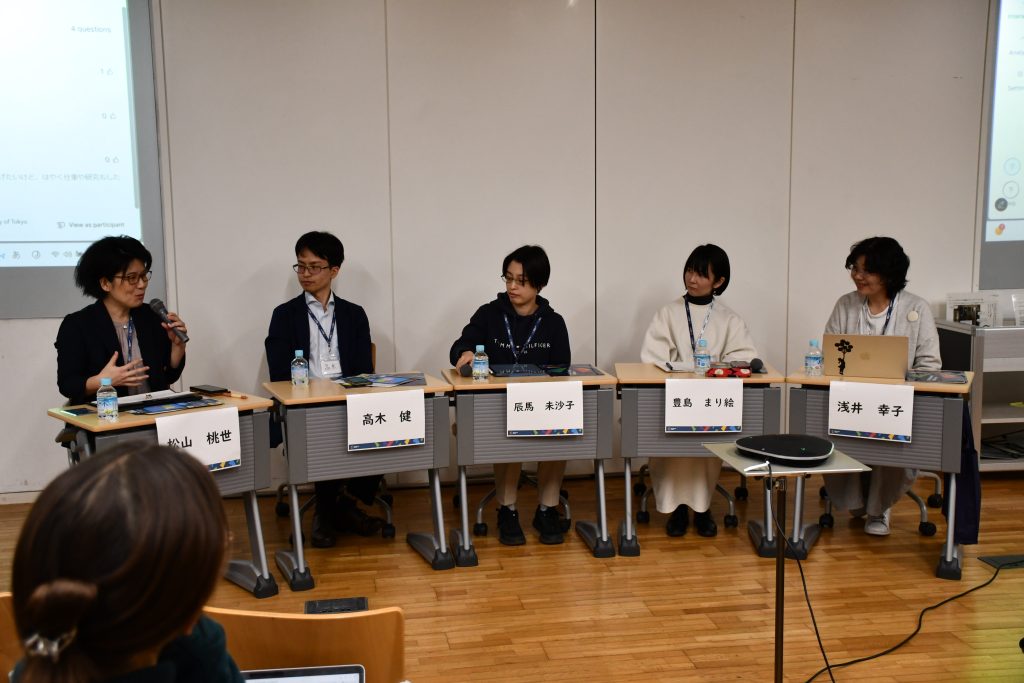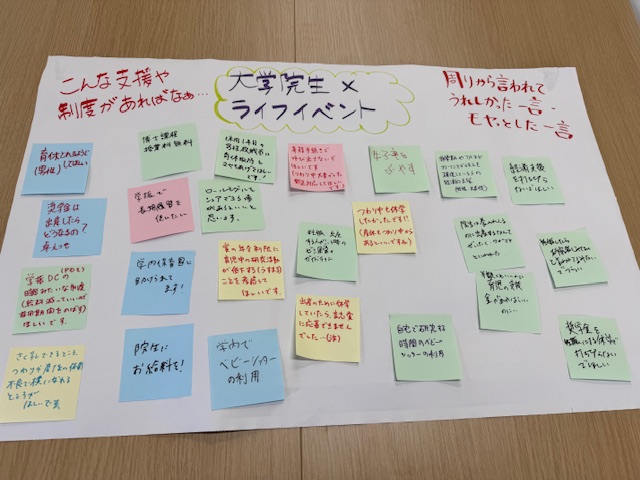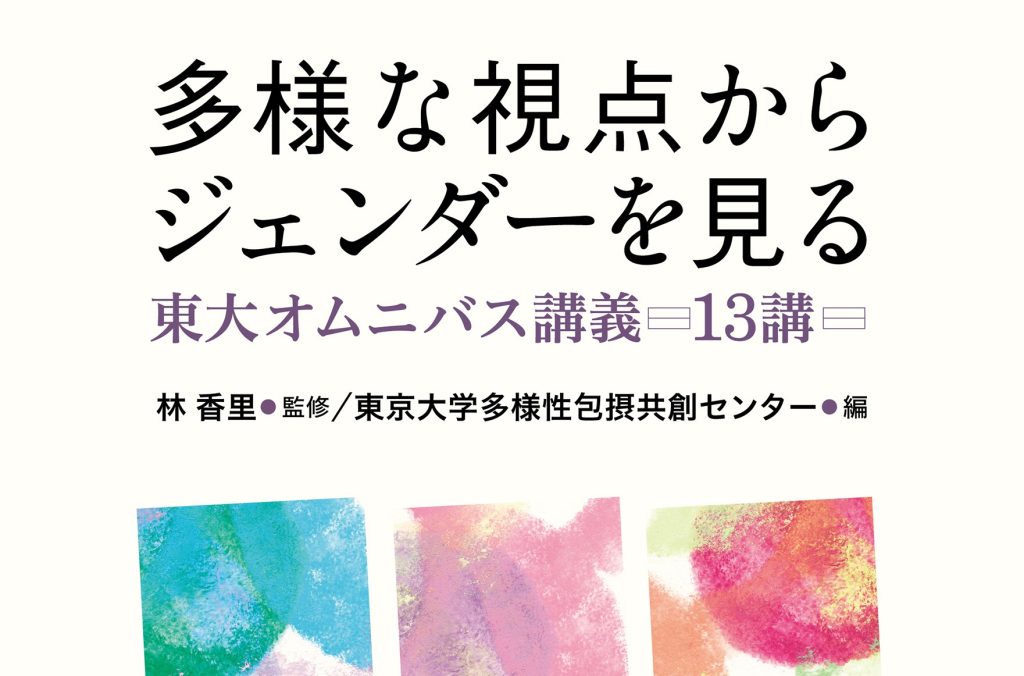On February 27, 2025, we held an event in commemoration of International Women’s Day (March 8) titled “Overcoming life events during graduate school: Let’s ask people with experience” (on-campus only). The event consisted of two parts and was attended by approximately 34 participants (in person and online).
Part 1
The first part of the event was a roundtable discussion by those who had experienced life events (mainly pregnancy, childbirth, and child rearing) during their time as graduate students. It was conducted in a hybrid format, combining online and in-person participation.
Moderator: Momoyo MATSUYAMA (Associate Professor, Institute of Industrial Science)
Speakers: Misako TATSUUMA (Researcher, RIKEN), Ken TAKAKI (Project Assistant Professor, Graduate School of Engineering), Marie TOYOSHIMA (Doctoral Student, Graduate School of Education), Sachiko ASAI (Professor, Graduate School of Education)
How to Spend a Day
First, each speaker introduced themselves and talked about how they spend their day while taking care of their children. While some were raising their children with their partners, others were in a “solo parenting” situation, with their partner working away from home. Babysitter subsidies and day care for sick children were mentioned as support systems they use. They talked about daily negotiations with their partners, how childcare workers and babysitters treat their children, and how they were helped by their partner’s childcare leave.
How to Choose a Lab
How did the speakers choose their lab? Let’s take a look at some examples of each.
TOYOSHIMA: I entered a doctoral program from a master’s program at another university while having a child. I visited several seminars in selecting my lab, and I found that Professor Asai’s lab meeting was held in a hybrid format, finished relatively early, and had a warm, homey atmosphere. This impression proved to be correct. Although there are not many lab members who are raising children, there is a supportive environment that welcomes my participation while raising children.
TATSUUMA: When selecting my lab for my master’s degree, I chose it based solely on the research topic. What made me decide to have a baby when I was a doctoral student was the nursery room at the National Astronomical Observatory of Japan (NAOJ). Admission to local government daycare is determined by scores, but scores are often low for students compared to those who are employed, who tend to get priority. I thought it would be difficult to enter an approved daycare, so the nursery room at NAOJ, where my laboratory was located at the time, was a big help. The people around me were also very understanding.
TAKAKI: Many PIs and men of the older generation in my research group actively participated in childcare, and I sometimes saw them bring their children to the laboratory on weekends. That is not why I chose to work there, but it is certainly a workplace that understands the child-rearing situation.

Messages to Participants
Finally, the speakers shared their messages to the participants.
TAKAKI: Parenting tends to be focused on the difficulties, but I think it is a good chance to grow as a human being. I also think it is a good experience that will be useful when you become a PI or take on a leadership position in the future.
TATSUUMA: It is not limited to child-rearing, but what I was told by people ahead of me is that health should come first. Many people get absorbed in theoretical research, but that doesn’t last long, so I think health is most important.
TOYOSHIMA: For those of you who are conducting research while raising children, let’s work together. I believe that the University of Tokyo has the ability to infuence others by what we say. I strongly hope that our university will use its power of communication to promote the enhancement of support and systems so that everyone who is raising children will be happy.
ASAI: I think it would be great if we could all do research embracing the diversity of both raising children and not raising children. If we only think of child-rearing as a burden while doing research, our world inevitably becomes narrow, and if research is conducted only by those who are raising children, the perspective will also be limited. I would like to think of ways in which we can all turn our experiences into enrichment.
MATSUYAMA: I would like to think about building a better environment with not only people who have experienced life events, but also all of those who are doing research.
Part 2
After the roundtable, a networking event was conducted in person only. Participants were divided into humanities and sciences groups, and opinions were exchanged in a warm atmosphere. Discussions touched on the difficulties faced by doctoral students while raising children, particularly those arising from financial and mental aspects, and what kind of support systems would be beneficial. Finally, we asked participants to share their thoughts on sticky notes and summarized them (see photo).

In closing
In the first part of the session, there was a discussion about how to deal with “uncontrollable parenting,” which is also a challenge because Japanese school education has emphasized the importance of “how to be self-disciplined.” There was also a shared awareness of the problem of the lack of support and systems available to graduate students. Some of the speakers used the long-term enrollment system, but we also regarded as a problem the almost complete lack of systems for graduate students to support childcare, and we would like to continue thinking about how to design support methods and systems that will enable graduate students raising children to pursue their research without giving up.
-1024x683.jpg)


